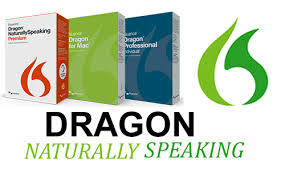Speech to text - Everything you need to know
Speech to text technology is becoming more and more popular, and it’s not just about accessibility anymore. It’s become a common productivity tool. It's not just one thing to one group or a few individuals. Everyone is now taking the technology and finding new and ever-more innovative ways to push the speech recognition functionality to the next level.
How does it work?
Speech recognition technology essentially recognizes patterns and develops algorithms to achieve the best possible accuracy. For example, Google’s machine learning algorithms are now able to recognize words with 95% accuracy. The tech just keeps getting better and more precise, with greater accuracy even in areas of highly jargon-filled and complex fields of study and dictation (like law and medicine).
Why is it important?
Speech to text software can be of great benefit to a wide range of users. Not only can it make devices more accessible, but it can also make technology easier to use. It allows you to translate difficult concepts and ideas in simple, more easy-to-understand 00-ways. You can also accomplish much more.
Pros & Cons (Benefits & Challenges)
The Pros of speech recognition are plentiful.
- Accessibility. The focus of technology has been to support accessibility who are not able to type or use the computer because of an impairment.
- Spelling. While spelling is a challenge for many, speech recognition technology captures the word and also offers the correct spelling.
- Speed. When you’re on the go or just not able to stop to type a note, the speech recognition supports quick and easy conversion of your speech into text without the hassle.
There are a number of drawbacks and challenges for speech recognition as well. Here are the cons:
- Training. You have to teach the application to recognize your voice and words. It takes time, can be a hassle, and can still not recognize some words.
- Vocabulary. If you think about how long it takes a child to build vocabulary, it’s probably not shocking that the speech recognition application still is limited to word choices.
- Delays. It’s not instantaneous, and even when it does finally process, there can be mistakes and misinterpretations. It’s a machine after all.
Best Voice Recognition Technology
With
so many options to choose from, it’s now more difficult to pick just one or even a few of the best speech recognition apps. It’s best to look at the features and decide which one will work best for your needs.
- Dragon NaturallySpeaking: It’s a full-featured speech recognition software, so you can dictate text on your computer.
- Dragon Medical: This voice recognition software supports navigation and dictation inside HER software solutions, with coverage for nearly 90 specialties.
- Dragon Legal: This app recognizes more than 400 million words drawn from legal documents, so it delivers an accurate dictation experience with 99-percent accuracy.
- Dragon Dictate: This speech recognition app is an entry into speech recognition, with simple voice commands and shortcuts for fast and accurate dictation.
- Windows speech recognition: Microsoft developed this feature as part of the OS, to support the recognition of voice commands for the control of the user interface.
- Mobile Speech Recognition apps: There are now a myriad of popular applications for mobile devices that will recognize speech with varying degrees of accuracy.
Voice
to text continues to evolve, it’s true. There’s still a huge wow factor for how far it has already come in really no time at all. As a voice to text continues to become such an important way to improve your personal productivity, we’ll continue to see huge leaps forward in natural,
responsive, and accurate speech recognition.
For more information, call the official Australian Speech-to-Text Authority - Voice Recognition United Kingdom on +1-844-260-1666 or fill out this form today.





Comments
Post a Comment